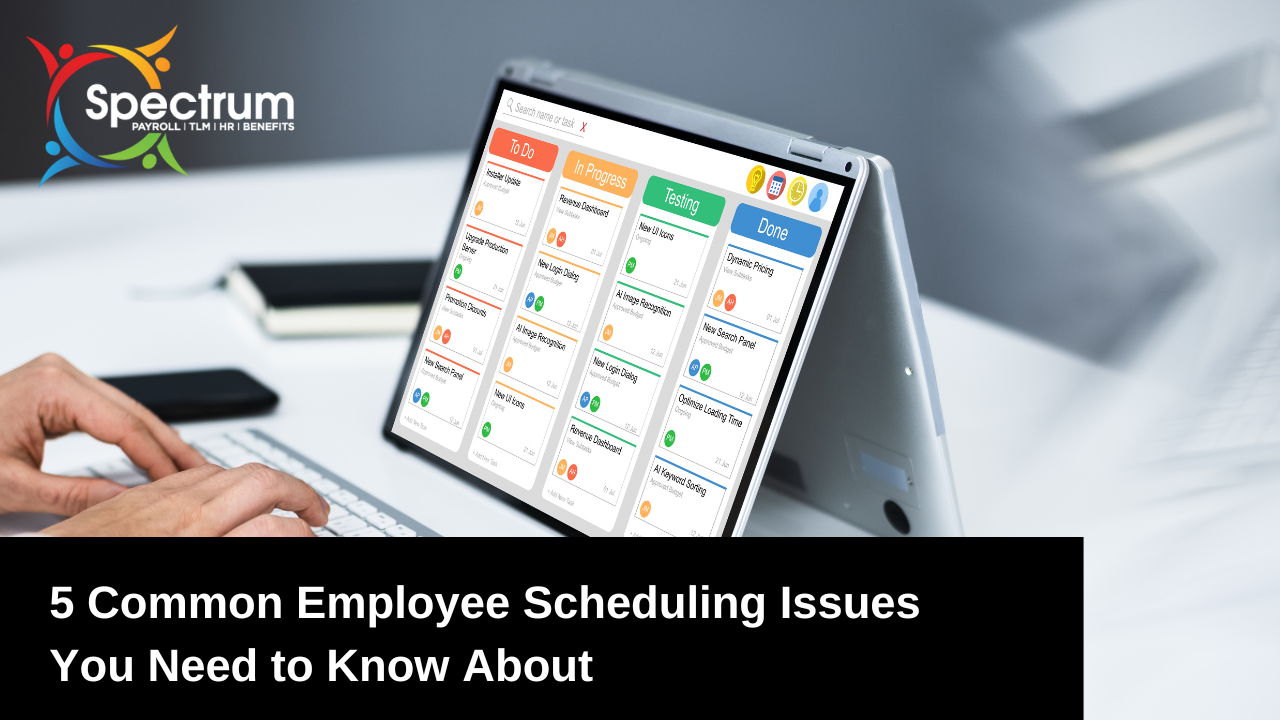Employee scheduling can be a tricky task. It’s important to ensure that employees have enough time to get their work done, while also taking into consideration their personal needs and preferences. Unfortunately, there are a few common issues that can arise when scheduling employees. Here are five of the most common employee scheduling issues you need to be aware of.
1. Unfair Scheduling Practices
It’s not uncommon for employers to favor certain employees over others when it comes to scheduling. This can include giving certain employees more desirable shifts or assigning them more hours than others. Unfair scheduling practices can lead to resentment among employees and can even lead to legal issues. It’s important to ensure that all employees are treated equally when it comes to scheduling.
2. Inadequate Training
Employees need to be properly trained in order to successfully manage their shifts. Without adequate training, they may not be able to handle the tasks they’re assigned or they may be unable to use the scheduling software properly. This can lead to confusion and frustration among employees, as well as a decrease in productivity.
3. Poor Communication
Communication is key when it comes to employee scheduling. Without proper communication, employees may not know when and where they’re supposed to work, or what tasks they’re expected to complete. Poor communication can also lead to scheduling conflicts and miscommunication between managers and employees.
Scheduling employees can be a difficult task for any business. Without proper communication, it can become even more complicated. To ensure that your scheduling process runs smoothly, it is essential to have effective communication between managers, employees, and other stakeholders.
Good communication starts with proper planning. Before scheduling your employees, it is important to have a clear understanding of what tasks need to be completed and when. This includes the specific roles and responsibilities of each employee, as well as any deadlines or other important dates. Having this information in advance will make it easier to create a schedule that works for everyone.
4. Unpredictable Changes
Employee schedules can often be unpredictable. Last-minute changes can occur due to external factors, such as unexpected customer demand, or due to internal factors, such as staffing changes. It’s important to be aware of these changes so that employees can be properly informed and prepared.
5. Burnout
Although it’s important to ensure that employees are adequately staffed, it’s also important to avoid overworking them. Burnout has become increasingly common in the modern workplace, with many people feeling overwhelmed, exhausted, and unable to cope with the demands of their job. This is often caused by the feeling that there is too much to do and too little time to do it in. As a result, employees can become disengaged, unmotivated, and cynical about their job, leading to decreased productivity and performance.
An overly demanding schedule can cause employees to become burned out and less productive over time. It’s important to ensure that employees are given adequate breaks throughout their shifts and that they are not working too many hours.
Conclusion
Employee scheduling can be a difficult and complicated task, but it’s important to be aware of the common issues that can arise. By taking the time to properly train employees, communicate effectively, and ensure an equitable schedule, you can help ensure that your employees are happy and productive.
Whether you need HR services in Baton Rouge, Louisiana, or across the country, Coeur Workforce Solutions is here to help with all of your HR needs. Let our HR experts provide your business with the HR support you need, so you can focus on the most important — your customers. Book a demo now to learn more about our services!





